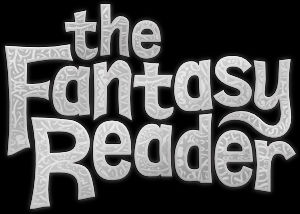Some words invented by fantasy writers
‘This word you used,’ she said. ‘This word “voor”. I looked it up in my best dictionary but couldn’t find it. Did you make it up?’
Now, the thing is, I read a lot, and a lot of what I read is fantasy. Fantasy is full of invented words, and perhaps inventing words is catching, so, yes, I might have...
— The Fantasy Reader, p. 12
Fantasy writers are always inventing words, mostly for fantastic beasts, new lands, magic spells, and so on. Sometimes these words enter common usage. Lewis Carroll even invented a way to describe a type of invented word: the ‘portmanteau word’, which blends or squashes (or bleshes — see below) two existing words to make a new one, as in ‘frumious’, which comes from ‘fuming’ and ‘furious’.
Here are just some of the words created by fantasy writers (including the word Carol, in The Fantasy Reader, thought she might have invented — ‘voor’):
- ae
- Pronoun for a person of a third (neither male nor female) sex. From A Voyage to Arcturus by David Lindsay.
- blesh
- A mix of ‘blend’ and ‘mesh’. Used to describe how a group of unusual individuals combine their unique, misfitted talents into a gestalt unity that works. (When David Crosby, of The Byrds, was asked in 1964 how his group was going, he said, ‘We blesh.’) From More than Human by Theodore Sturgeon.
- burble
- Bleat, murmur, warble. From “Jabberwocky”, in Through the Looking Glass by Lewis Carroll.
- chortled
- Perhaps a mix of chuckle and snort. From “Jabberwocky”, in Through the Looking Glass by Lewis Carroll.
- cobbing
- The ‘excessive use of elbows’, particularly in Quidditch. From Harry Potter and the Goblet of Fire by J K Rowling.
- frabjous
- Nonsense word, undefined by Lewis Carroll. A frabjous word, all the same. From “Jabberwocky”, in Through the Looking Glass by Lewis Carroll.
- frood
- A ‘really amazingly together guy’. Use hoopy as an intensifier. From The Hitchhiker’s Guide to the Galaxy by Douglas Adams.
- frumious
- Fuming-furious. From “Jabberwocky”, in Through the Looking Glass by Lewis Carroll.
- glicker
- Mix of flicker and glimmer: ‘Constellations hung and glickered in the sky.’ From Strange Evil by Jane Gaskell.
- gloomth
- Used by Gothic novelist Horace Walpole to describe one of the attractions of the Gothic novel.
- grok
- Martian word meaning ‘drink’ or ‘take it all in’, but was adopted by the 1960s counter-culture to mean ‘understand’. From Stranger in a Strange Land by Robert Heinlein.
- mimsy
- Unhappy. From “Jabberwocky”, in Through the Looking Glass by Lewis Carroll.
- mome
- Grave, solemn. From “Jabberwocky”, in Through the Looking Glass by Lewis Carroll.
- Mudblood
- Derogatory term for person of mixed magical & Muggle blood. From Harry Potter and the Chamber of Secrets by J K Rowling.
- Muggle
- A non-magical person. From the Harry Potter books by J K Rowling. See also Mundane.
- Mundane
- Person with no magical talents, from Mundania (i.e., our world). From the Xanth books by Piers Anthony.
- portmanteau word
- Lewis Carroll’s term for a type of invented word compounded of two others. From Alice Through the Looking Glass by Lewis Carroll.
- serendipity
- Coined by Horace Walpole, to describe a quality he perceived in the fairy tale ‘The Three Princes of Serendip’, whose heroes ‘were always making discoveries, by accidents and sagacity, of things they were not in quest of’.
- shir/shirred
- From The Riddle Master’s Game, by Patricia McKillip: ‘He made the hawk return to the line again and again, until finally a movement in the full light below snapped its attention, and as it flung itself eastward, he shirred himself from its mind.’
- slithy
- ‘Smooth and active’, compound of slimy and lithe. (See Portmanteau word.) From “Jabberwocky”, in Through the Looking Glass by Lewis Carroll.
- supercalifragilisticexpialidocious
- The Sherman brothers coined this word for the film Mary Poppins. It is ‘something to say when you have nothing to say’.
- utopia
- ‘No place’, or an ideal (and therefore impossible) place. From Utopia by Thomas More.
- voor
- Mysterious, weird, perhaps frightening or magical. From “The White People” by Arthur Machen.
- vorpal
- As in ‘vorpal blade’. Meaning unexplained. From “Jabberwocky”, in Through the Looking Glass by Lewis Carroll.
- vril
- A force or energy that the subterranean race, the Vril-ya, use as we use electricity. Now mostly memorialised by its inclusion in the name Bovril (bovine ‘vril’). It was also used in Virol, ‘a fortifying toffee-like substance’ (as Brian Aldiss describes it, in Trillion Year Spree). From The Coming Race by Edward Bulwer-Lytton.
